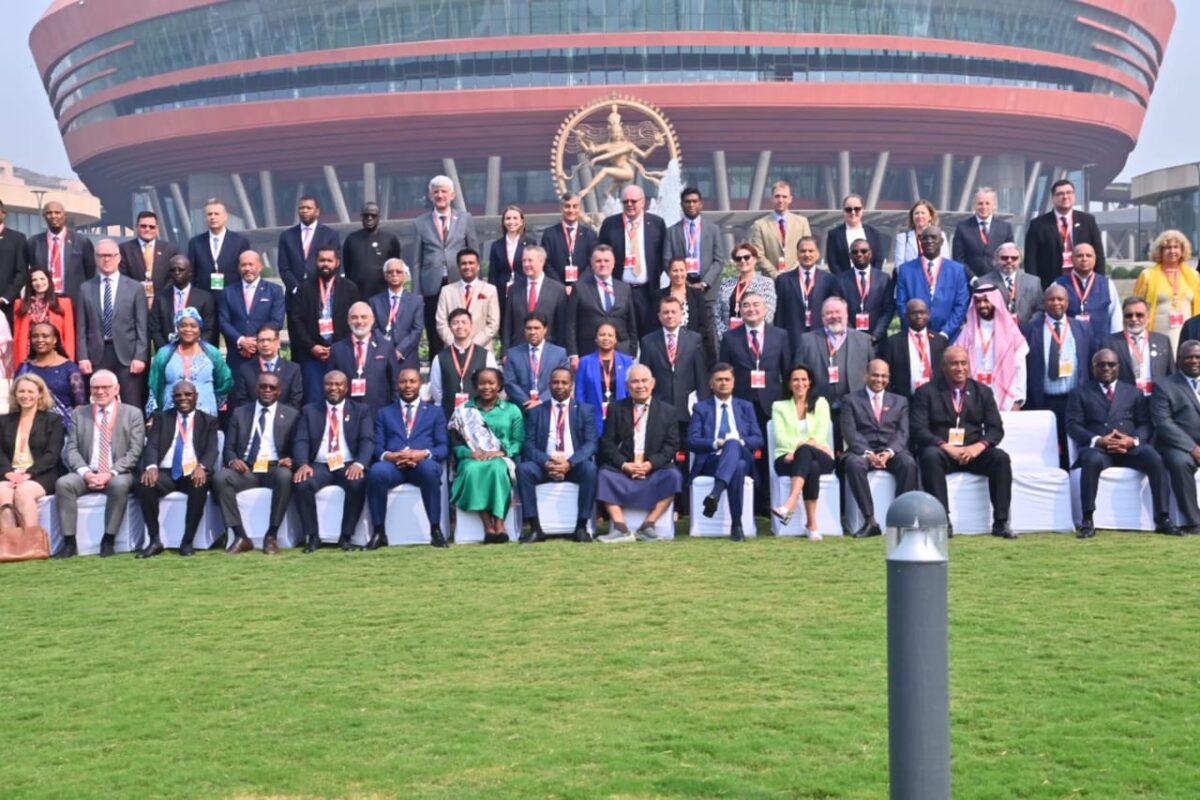The Sixth Assembly of the International Solar Alliance (ISA) was hosted in New Delhi today and was presided over by Raj Kumar Singh, minister of power and new & renewable energy, Government of India in his capacity as the President of the ISA Assembly. Ministers from 20 countries and delegates from across 116 member and signatory countries participated in the Assembly.
The Assembly has decided to increase the viability gap funding for solar projects in member countries from 10% of the project cost to up to 35%, depending on the capacity and needs of the countries and their respective projects.
Speaking on the occasion, Raj Kumar Singh said, “Around 80% of the global population resides in countries that depend on fossil fuel imports, totalling a staggering 6 billion people. Renewable energy sources have the potential to supply 65% of the world’s total electricity by 2030 and decarbonize 90% of the power sector by 2050.”
“The International Solar Alliance is steadfast in its commitment to Member Countries to make solar as the energy source of choice, foster environments conducive to attracting investments and ensuring ample energy availability to meet the surging global demands. Towards this, ISA through its viability gap funding (VGF) mechanism provides a grant of $150,000 or 10% of the project cost (whichever is lower), per country per project. The Assembly decided to increase the range to 35% of the project cost, depending on the capacity and needs of the countries and their respective projects.”
The Co-President of the Assembly, Chrysoula Zacharopoulou, France’s Minister of State for Development, Francophonie and International Partnerships, said: “For France, the ISA is a key initiative to promote the development of clean energy and thus combat climate disruptions. It is playing its full part in this great project, with constant and growing support for our Alliance. Through the French Development Agency (AFD), we’ve financed over 1.5 billion euros worth of solar projects since 2016. France is taking action and we are determined to accelerate.”
The ISA has created a Global Solar Facility (GSF) with payment guarantee, insurance and investment fund components to catalyze solar investments in various countries across the world, starting with Africa’s underserved geographies. The GSF will mainly focus on decentralized solar solutions, rooftop solar and productive use solar. Through the GSF, the ISA aims to mitigate project risks and provide technical assistance to address regulatory gaps in the solar energy sector.
Dr Ajay Mathur, Director General of International Solar Alliance, said, “We urgently need to accelerate the build-up of solar energy, especially in developing countries and in applications that influence the daily lives of those without access to reliable energy – such as getting electricity from solar mini-grids, powering agricultural pumps, running cold storages, etc. Capacity building and regulatory change are necessary enablers towards that.”
“The ISA has so far facilitated development of 1 GW of solar projects in its member countries. It is further facilitating over 9.5 GW of solar applications in 55 developing countries, including least developed countries and small island developing states, and has already provided training to nearly 4,000 people across the developing world on ways to make a living out of supporting solar energy.”
The ISA is also working on developing STAR Centres which will be a hub of technology, knowledge, and expertise on solar energy. It is also enabling entrepreneurs in these countries who can, with help, become major suppliers of solar energy across countries and regions.
In May 2020, ISA initiated Demonstration Projects to meet the needs of LDCs and SIDS. The aim was to exhibit solar technology applications, which can be scaled up, and build the capacity of beneficiary member countries. Four projects set up with ISA’s assistance were inaugurated by RK Singh. These projects include:
- Solarisation of the parliament building of the Republic of Malawi
- the solarisation of two rural health care centres in the Republic of Fiji, with an 8-kW solar PV system & 20-kWh battery storage capacity for each health centre
- Installation of 1 solar powered cold storage of capacity 5 MT for the benefit of its agricultural stakeholders at La Digue Island, Republic of Seychelles
- Solarisation of the Nawai Junior Secondary school (JSS) in the Republic of Kiribati, with a 7kW Solar PV rooftop system paired with a 24-kWh BSS
The International Solar Alliance is a multilateral treaty based organization which today has 116 member countries. Before the end of the year, it expects four more countries to join, which will take its member countries to 120.
The ISA works with governments to ease solar deployment and promote solar power as a sustainable transition to a carbon-neutral future. Its mission is to unlock $1 trillion of investments in solar by 2030 while reducing technology and its financing costs. It is partnering with multilateral development banks, development financial institutions, private and public sector organisations, civil society, and other international institutions to deploy cost-effective and transformational solutions through solar energy, especially in the least developed countries and the small island developing states.
This content is protected by copyright and may not be reused. If you want to cooperate with us and would like to reuse some of our content, please contact: editors@pv-magazine.com.









Renewable energy can save the world from air and water pollution ozone layer depletion and many other hazards which deteriorate all living beings health to a great extent.